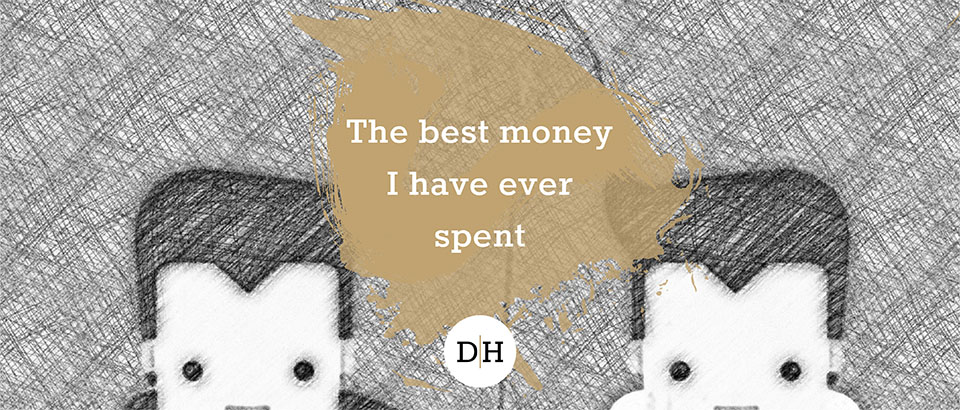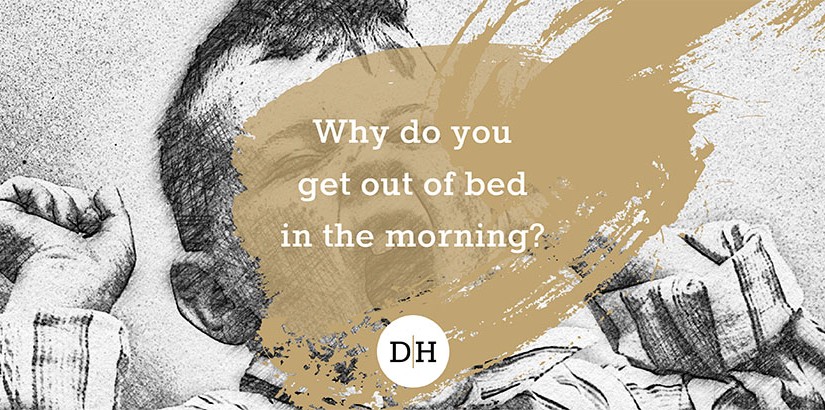In business, sometimes it’s important to spend money you never expect a financial return on. Looking solely at the financial side of things can often cloud your judgment and can cause you to lose in other areas.
To show you what I mean, let me tell you about the best twenty dollars I’ve ever spent.
A week ago I was woken up at three in the morning.
Outside, within earshot of myself, my wife, and everyone else in a three-mile radius, a man had struck up an argument with the police.
Unable to sleep, I went out on my balcony to see if I could figure out what was going on. To be honest I was actually worried that officers might shoot the guy and wanted to be able to interfere in case it got really out of hand. From the sounds of it, the man did not have any ID, claiming that somebody had stolen his wallet along with all of his money.
At first I thought the officers were giving him a hard time. But I quickly realized that they’d already established who he was (even without his ID), and were trying to move on. But the man was (loudly) insisting that they help him resolve his stolen money situation. He kept yelling and yelling to the point where I was thinking.. “when do they finally shoot him so I can go back to bed ;)”
Then he said: He took my twelve dollars… This drama was about twelve dollars?
I took a crisp twenty from my wallet, went outside, and asked the officers, “Excuse me guys, how about I give this gentleman this $20 bill, everybody can go home and I can go back to bed?”
Awkward silence…
I turned to the wallet-less gentleman, “You’ve just made $8 profit from losing your wallet. How about you move on?”
He took the money and the police officers apologized and thanked me for solving this for them.
The best $20 I have ever spent 🙂
Poisonous Customers
In your business, it’s unlikely that you’ll find yourself in a situation like the one I’ve just described. I’m assuming your employees will never have their wallets stolen and you’ll never have to intervene on their behalf. But let’s talk about a situation that does happen in business, and one you may already be familiar with— poisonous customers.
Poisonous customers are easy to recognize. They typically use huge amounts of your time, drive your staff crazy, and are often a hassle to deal with.
We’ve all met these customers at some point. Though how we deal with them is quite different from one company to the next. For a lot of businesses, these customers are a pain the neck, but still vital to the firm’s bottom line.
For this reason alone, poisonous customers are often kept around. Refusing to help them doesn’t make financial sense… or does it?
Firing your Customers
Have you ever watched your staff as they interact with these poisonous customers? You can almost see their morale shatter into a million pieces a few minutes into the conversation. What effect do you think that has on the team?
This is why I suggest you fire your poisonous customers.
Profits made at the expensive of your team’s happiness are not really profits. Try analyzing your interactions with your customers. How many poisonous relationships are you shouldering simply for the sake of profit? How are these relationships impacting your team?
Before they can spoil the bunch, it’s a good idea to examine these bad apples and see if it’s really worth keeping them around. Think about the time you’ll spend sourcing, screening, and training new talent if your team’s morale drops so low they walk out.
In some cases, you may have to literally actually pay these customers to have them disappear. But I assure you, the rewards for your team — happiness, increased productivity, and boosted morale — are well worth it.
Where Will You Invest?
Like the twenty dollars I spent at three in the morning, look around you and see if there’s an opportunity to outspend your problem customers. Who is holding the happiness of your team hostage? How can you invest in their continued happiness by removing these obstacles from their lives?
Who can you pay to disappear?
I’ll leave you with one final (NSFW) thought. Just a short video that sums up how much you have to gain by paying your problems to disappear.




